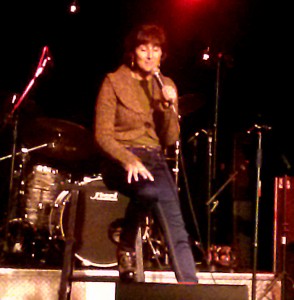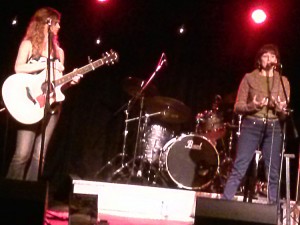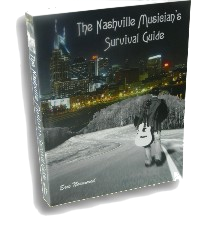Diane Kimbrough
Nashville Performance Coach, Diane Kimbrough speaks at the Nashville Berklee Jam – October 28, 2013
Monday, October 28 was another great Nashville Berklee Jam, and our special guest on that night was Nashville’s most in-demand performance coach, Diane Kimbrough. Early on in her talk Diane addressed the essence of performance coaching.
“Why do we need live performance coaching, why isn’t it good enough to just play great music…? We don’t make money from music, music is free.  Artists make money from touring and from merchandise… You have got to give an audience a tremendous experience that is beyond what the music is, otherwise why are they going to pay $75 for a concert ticket when they can get the music for free…”
Artists make money from touring and from merchandise… You have got to give an audience a tremendous experience that is beyond what the music is, otherwise why are they going to pay $75 for a concert ticket when they can get the music for free…”
She continued, “…That’s why it’s so important for your success as an artist to really put a lot of effort into fine tuning your show and your relationship with three things on stage; your audience, your band, and your instrument”
She explained that you need to “create an experience” and that you need to “go deep into your music and find what speaks to your audience”.
The music that is dearest to my heart would be most American roots music recorded up to the mid-1970’s, music born of an era when the visual presence of an artist played a lesser role. Back then, the power of the music itself was more integral to an artist’s success. Well you know the old saying, “video killed the radio star”. As much as I would rather just get lost in my music during a live performance, I do realize that if I fail to acknowledge my audience and bring them into the show they are less likely to “get” my music. After all, it’s no longer 1969, and I’m not performing at the Fillmore.
Diane continued, “Everything you do on stage should be a reflection of what you’re doing musically and lyrically…How might somebody else think about your song?… They’re not into how cool you play it but how you make them a part of it.”
 To demonstrate how this works, Diane critiqued several performances throughout the night. After each performance Diane would make some critiques and suggestions, and then the performer tried it again with the new ideas in mind. I must say that everybody showed immediate improvements. I even put myself on the chopping block, performing one of my originals. Diane stopped us half way through the first verse and asked
To demonstrate how this works, Diane critiqued several performances throughout the night. After each performance Diane would make some critiques and suggestions, and then the performer tried it again with the new ideas in mind. I must say that everybody showed immediate improvements. I even put myself on the chopping block, performing one of my originals. Diane stopped us half way through the first verse and asked
“Who are you playing for?”
“I’m playing for you guys”, I answered.
“You could’ve fooled me, because you came up and started looking right there at the floor, and there’s all of us out here that missed you on that wonderful intro.”
I explained that I was actually looking down at my left hand on the guitar, which happens to be in line with the floor, perhaps a habit that many of us guitar players have.
“You’re up there for us to have a good time… you have to engage us visually. That’s not just you, that’s for everybody”, Diane commented, motioning to the other players in my band. “Otherwise, you’re playing for yourselves, and you can do that in your bedroom. The song doesn’t start when the lyrics start, the song starts when you walk on stage.”
We tried the song again, but this time I made it a point to look ahead and into the crowd, making eye contact with several people while engaging in a few visual enhancements. I have to say that the performance was instantly more powerful, drawing a more notable response from the crowd. After the second chorus of the song Diane stopped us midway through my guitar solo.
“What I’m getting is ‘I’m playing this cool music’, what I want you to play is, ‘let me give you a gift of this cool music’. I want you to play, ‘hey guys, listen to this, this is for you’. You’re not playing it because it’s cool, you can do that in your bedroom. You’re playing it because you want them to have this. Give it away as a gift…do the physical things that say this is for you.”
She also addressed my other bandmates.
“Mike (our bassist), you’re [conveying] hey man what do you think of this? And he’s going (motioning to our drummer), ‘man, that’s cool’. And you’re also [conveying] to the audience, ‘what do you think of this, want some of this?’
We tried the performance one last time and, needless to say, the different mindset not only translated into a deeper connection with our audience and a bigger response, but also made for a better musical performance. Diane commented on our improvements and finished her part of the night with a few more remarks.
“What you always have to do is stay aware of the reason that you’re there, which is, the audience. You’re there so that they have an experience, they’re not there so you have an experience. They really don’t care if you’re having a good time, if you get to have a good time that’s the icing on the cake… you have to translate everything you’re doing to the fact that your there so that they have a good time. God knows in this industry we’re not here for the money… you’re here because you want to make them have an experience, that’s why you get to keep coming up here and doing it, because you made them have an experience. If you love what you do and you want to keep doing it you have to do it because of the audience…after all, they paid the cover; they already gave something to you.”
If you’d like to learn more about Diane or e-mail her some questions, please visit her website.
The Nashville Berklee Jam is held at The Rutledge on the last Monday of every other month, with the next event to take place on Monday, February 24, (guest speaker TBA).
For more info about future events, please visit the Nashville Berklee Jam website NashvilleBerkleeJam.com
If you would like to learn more about the Nashville music industry, please check out my website and book “The Nashville Musician’s Survival Guide”.


